[ps2id id=’about’/]
Natalia Molina
Distinguished Professor of American Studies and Ethnicity
University of Southern California
Specializing in History, Latinx Studies, Immigration, Gender, Foodways, and Public Health
2020 MacArthur Fellow
Professor Molina’s work lies at the intersections of race, gender, culture, and citizenship.
Natalia Molina is a Distinguished Professor in the Department of American Studies and Ethnicity at the University of Southern California. Her research explores the intertwined histories of race, place, gender, culture, and citizenship. She is the author of the award-winning books, How Race Is Made in America: Immigration, Citizenship, and the Historical Power of Racial Scripts and Fit to Be Citizens?: Public Health and Race in Los Angeles, 1879-1940. Her most recent book is A Place at the Nayarit: How a Mexican Restaurant Nourished a Community, on immigrant workers as placemakers —including her grandmother—who nurtured and fed the community through the restaurants they established, which served as urban anchors. She co- edited Relational Formations of Race: Theory, Method and Practice, and is now at work on a new book, The Silent Hands that Shaped the Huntington: A History of Its Mexican Workers. In addition to publishing widely in scholarly journals, she has also written for the LA Times, Washington Post, San Diego Union-Tribune, and more. Professor Molina is a 2020 MacArthur Fellow.
Professor Molina is also proud of her efforts to advance diversity in higher education. At the University of California, San Diego, she served as the Associate Vice Chancellor for Faculty Diversity and Equity and as the Associate Dean for Arts and Humanities; her work was recognized by Diverse: Issues in Higher Education. She was also Director of the University of California Education Abroad Program in Spain and a member of the Faculty Advisory Committee for the University of California’s President’s Postdoctoral Fellowship Program. She served a six-year term on the board of California Humanities, a non-profit partner of the National Endowment for the Humanities, and currently serves on several boards, including those of the Huntington Library, Art Museum, and Botanical Gardens and the Scholars Council for the Library of Congress.
Professor Molina’s work has been supported by the National Endowment for the Humanities as well as the Ford, Mellon, and Rockefeller Foundations. A Distinguished Lecturer for the Organization of American Historians and an elected member of the Society of American Historians, she has given lectures in Latin America, Asia, Europe, as well as over 30 of the 50 United States. In 2018, she was the Organization of American Historians China Residency scholar. A certified mediator, she enjoys opportunities for intellectual and cultural exchange, whether in the classroom, lecture hall, or over a restaurant table.
[/show_more]
[ps2id id=’books’/]
Books
A Place at the Nayarit
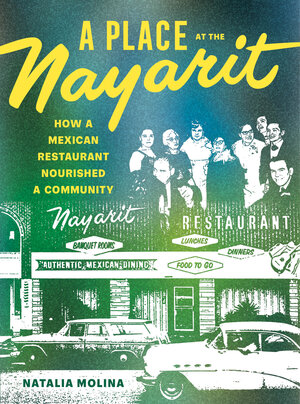
In a world that sought to reduce Mexican immigrants to invisible labor, the Nayarit was a place where people could become visible once again, where they could speak out, claim space, and belong. In 1951, Doña Natalia Barraza opened the Nayarit, a Mexican restaurant in Echo Park, Los Angeles. With A Place at the Nayarit, historian Natalia Molina traces the life’s work of her grandmother, remembered by all who knew her as Doña Natalia––a generous, reserved, and extraordinarily capable woman. Doña Natalia immigrated alone from Mexico to L.A., adopted two children, and ran a successful business. She also sponsored, housed, and employed dozens of other immigrants, encouraging them to lay claim to a city long characterized by anti-Latinx racism. Together, the employees and customers of the Nayarit maintained ties to their old homes while providing one another safety and support.
The Nayarit was much more than a popular eating spot: it was an urban anchor for a robust community, a gathering space where ethnic Mexican workers and customers connected with their patria chica (their “small country”). That meant connecting with distinctive tastes, with one another, and with the city they now called home. Through deep research and vivid storytelling, Molina follows restaurant workers from the kitchen and the front of the house across borders and through the decades. These people’s stories illuminate the many facets of the immigrant experience: immigrants’ complex networks of family and community and the small but essential pleasures of daily life, as well as cross-currents of gender and sexuality and pressures of racism and segregation. The Nayarit was a local landmark, popular with both Hollywood stars and restaurant workers from across the city and beloved for its fresh, traditionally prepared Mexican food. But as Molina argues, it was also, and most importantly, a place where ethnic Mexicans and other Latinx L.A. residents could step into the fullness of their lives, nourishing themselves and one another. A Place at the Nayarit is a stirring exploration of how racialized minorities create a sense of belonging. It will resonate with anyone who has felt like an outsider and had a special place where they felt like an insider.
Reviews
“The Nayarit was a historic place in Los Angeles. Who doesn’t speak of it?”
Jaime Jarrín, Spanish-language broadcaster for the Los Angeles Dodgers and National Baseball Hall of Fame Ford C. Frick Award Winner
“We throw around words like ‘community’ and ‘hospitality’ all of the time when speaking of restaurants, these third spaces that are neither home or work. But rarely do we find an example of those qualities displayed deeply and truly as in the story of the Nayarit Restaurant and its matriarch and the bridges she and her family built between communities in Los Angeles. The story of Doña Natalia, told by her granddaughter Natalia Molina, is a must-read for anyone interested in the vital role restaurants can have in their communities.”
Evan Kleiman, chef, author, and host of Good Food on KCRW
“In this stunning book, Natalia Molina reanimates for us the stories, loves, and lives that flourished under the elegant but faded ‘Nayarit’ restaurant sign that’s hovered over Echo Park for decades: a story that is not only her family’s own but also a spark of Mexican American world-building in Los Angeles.”
Karen Tongson, author of Why Karen Carpenter Matters and Relocations: Queer Suburban Imaginaries
“Combining histories of family, ethnic queer, labor, women, and space, this book is a masterpiece of place as it shows how a neighborhood restaurant functioned as the center of multiple ignored-too-long universes.”
Gustavo Arellano, columnist, Los Angeles Times
“What is the nature of place-making? It’s an essential question in terms of how we think about cities and how they operate, and it has long sat at the center of Natalia Molina’s work. In A Place at the Nayarit, Molina expands on her previous efforts by going personal. Through the lens of her grandmother’s restaurant, Molina creates a vivid portrait of mid-century Echo Park, but even more, she frames the contradictions of place and who gets to belong—especially for those who exist, as Molina observes, ‘beneath the official timeline of events.’ With this book, Molina has expanded her vision by turning it inward, to examine with subtlety and nuance the territory of family and identity.”
David L. Ulin, author of Sidewalking: Coming to Terms with Los Angeles and editor of Writing Los Angeles: A Literary Anthology
“Centered on her grandmother’s restaurant in Echo Park, The Nayarit, Molina’s original ethnography reveals political and cultural placemaking by an entrepreneurial family. A must-read for historians of Los Angeles as well as feminist scholars and foodies.”
Dolores Hayden, author of The Power of Place: Urban Landscapes as Public History
“A Place at the Nayarit puts Mexican immigrants at the center of the history of race, sexuality, and belonging in L.A., a place so segregated that it was known as America’s ‘white spot.’ With a gripping narrative, Molina documents how her extraordinary grandmother established a restaurant and used it to nourish a community of immigrants. Their community thrived until the age of gentrification began, banishing businesses and families one by one and in a myriad of ways.”
Kelly Lytle Hernández, author of Migra! and City of Inmates
How Race is Made in America
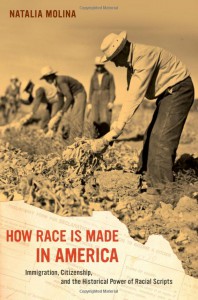
How Race Is Made in America: Immigration, Citizenship, and the Historical Power of Racial Scripts, University of California Press, 2014
Molina demonstrates that despite the multiplicity of influences that help shape our concept of race, common themes prevail. Examining legal, political, social, and cultural sources related to immigration, she advances the theory that our understanding of race is socially constructed in relational ways—that is, in correspondence to other groups. Molina introduces and explains her central theory, racial scripts, which highlights the ways in which the lives of racialized groups are linked across time and space and thereby affect one another. How Race Is Made in America also shows that these racial scripts are easily adopted and adapted to apply to different racial groups.
Reviews
“Molina argues and convincingly demonstrates that “Immigration laws are perhaps the most powerful and effective means of constructed and reordering the social order in the United States.”
Michael Omi, Pacific Historical Review
“Molina provides a fresh, sophisticated analysis of the powerful racial ‘scripts’ generated in twentieth-century US political and legal culture, and of the Mexican population’s unique vulnerability in the 1920s and after as eminently ‘deportable.’ …
… This book’s importance is sadly substantiated by twenty-first-century headlines about immigration policy, ‘papers please’ laws, and urban policing. A critical contribution.”
Matthew Frye Jacobson, author of Whiteness
of a Different Color and Barbarian Virtues
Awards

Susanne M. Glasscock Humanities Book Prize for Interdisciplinary Scholarship
Relational Formations of Race: Theory, Method, and Practice
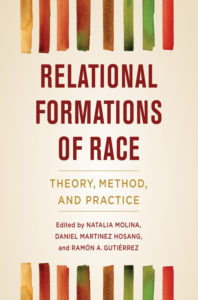
Relational Formations of Race brings African American, Chicanx/Latinx, Asian American, and Native American studies together in a single volume, enabling readers to consider the racialization and formation of subordinated groups in relation to one another. These essays conceptualize racialization as a dynamic and interactive process; group-based racial constructions are formed not only in relation to whiteness, but also in relation to other devalued and marginalized groups. The chapters offer explicit guides to understanding race as relational across all disciplines, time periods, regions, and social groups. By studying race relationally, and through a shared context of meaning and power, students will draw connections among subordinated groups and will better comprehend the logic that underpins the forms of inclusion and dispossession such groups face. As the United States shifts toward a minority-majority nation, Relational Formations of Race offers crucial tools for understanding today’s shifting race dynamics.
Reviews
“What if we could think about race and racism differently? Go beyond thinking about race mainly in terms of whiteness and its ‘others’? Dispense with fatuous denunciatoions of ‘groupism’ and recognize the centrality of racialization in the construction of our world? In Relational Formations of Race, some of our most profound race theorists do just that. They explore how racial identities and racialized groups interact and overlap. They show how racial formation involves permanent conflict with the U.S. empire-state and simultaneously constitutes that state. Exclusion and inclusion; conquest and social control; struggles over racialized labor, gender, migration, and, indeed, U.S. imperialism and ‘nation-building’—all are reconceptualized here. Our understanding of race and racism is both deepened and broadened by this exceptional book, which will certainly become a central text across the disciplines. A tour de force and a must for course adoption!”
Howard Winant, coauthor of Racial Formation in the United States
“This is a must-read for everyone in American Studies, Ethnic Studies, and Africana Studies, and, indeed, for anyone who wants to understand how and why difference and disadvantage are created and perpetuated, and how we are all, in some way, complicit in this creation and perpetuation. It is destined to become a big-hearted model of scholarly praxis on race, a core text for the next generation of young scholars who recognize that activism and deeper understanding are joined at the hip.”
Matthew Pratt Guterl, author of Josephine Baker and the Rainbow Tribe
“Studying race as a relational formation is more than powerful—it is necessary. This important gathering of essays challenges even the most radical thinkers on race to repattern the ways we understand social justice, human rights, and struggles that form in mutual action toward a common good. Together, these essays refuse the dominance of whiteness in studies and enactments of racial relations, generating new theories and conversations that reveal historic and powerful connections among freedom seekers across the globe.”
Gaye Theresa Johnson, author of Spaces of Conflict, Sounds of Solidarity and coeditor of Futures of Black Radicalism
Fit to Be Citizens?
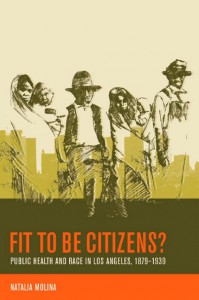
Fit to Be Citizens?: Public Health and Race in Los Angeles, 1879-1940, University of California Press, 2006
Meticulously researched and beautifully written, Fit to Be Citizens? demonstrates how both science and public health shaped the meaning of race in the early twentieth century. Through a careful examination of the experiences of Mexican, Japanese, and Chinese immigrants in Los Angeles, Natalia Molina illustrates the many ways local health officials used complexly constructed concerns about public health to demean, diminish, discipline, and ultimately define racial groups. She shows how the racialization of Mexican Americans was not simply a matter of legal exclusion or labor exploitation, but rather that scientific discourses and public health practices played a key role in assigning negative racial characteristics to the group.
The book skillfully moves beyond the binary oppositions that usually structure works in ethnic studies by deploying comparative and relational approaches that reveal the racialization of Mexican Americans as intimately associated with the relative historical and social positions of Asian Americans, African Americans, and whites. Its rich archival grounding provides a valuable history of public health in Los Angeles, living conditions among Mexican immigrants, and the ways in which regional racial categories influence national laws and practices. Molina’s compelling study advances our understanding of the complexity of racial politics, attesting that racism is not static and that different groups can occupy different places in the racial order at different times.
Reviews
“An important advance on previous dissections of the close (and ongoing) links between medicine and racialization in the United States …
… Molina has written an engaging history that is all the more compelling for its relevance to racialization in the 21st century.”
American Journal Of Sociology / AJS
“Molina accomplishes a formidable feat in this book through incisive analysis, elegant prose, and a passionate engagement with the cruel paradox …
… that groups who suffer poor health due to political, social, and economic disenfranchisement all too often are scapegoated as disease vectors. …
… Fit to Be Citizens? is a sophisticated monograph that should serve as a model for ethnic studies scholarship on race, …
… health, and the body politic in modern America.”
Western Historical Qtly
“This riveting study crosses boundaries of both discipline and nationality to marvelous effect.”
David Roediger, author of Working Toward Whiteness
Awards

Pacific Coast Branch of the American Historical Association’s Norris & Carol Hundley Award
A Place at the Nayarit
In a world that sought to reduce Mexican immigrants to invisible labor, the Nayarit was a place where people could become visible once again, where they could speak out, claim space, and belong. In 1951, Doña Natalia Barraza opened the Nayarit, a Mexican restaurant in Echo Park, Los Angeles. With A Place at the Nayarit, historian Natalia Molina traces the life’s work of her grandmother, remembered by all who knew her as Doña Natalia––a generous, reserved, and extraordinarily capable woman. Doña Natalia immigrated alone from Mexico to L.A., adopted two children, and ran a successful business. She also sponsored, housed, and employed dozens of other immigrants, encouraging them to lay claim to a city long characterized by anti-Latinx racism. Together, the employees and customers of the Nayarit maintained ties to their old homes while providing one another safety and support.
The Nayarit was much more than a popular eating spot: it was an urban anchor for a robust community, a gathering space where ethnic Mexican workers and customers connected with their patria chica (their “small country”). That meant connecting with distinctive tastes, with one another, and with the city they now called home. Through deep research and vivid storytelling, Molina follows restaurant workers from the kitchen and the front of the house across borders and through the decades. These people’s stories illuminate the many facets of the immigrant experience: immigrants’ complex networks of family and community and the small but essential pleasures of daily life, as well as cross-currents of gender and sexuality and pressures of racism and segregation. The Nayarit was a local landmark, popular with both Hollywood stars and restaurant workers from across the city and beloved for its fresh, traditionally prepared Mexican food. But as Molina argues, it was also, and most importantly, a place where ethnic Mexicans and other Latinx L.A. residents could step into the fullness of their lives, nourishing themselves and one another. A Place at the Nayarit is a stirring exploration of how racialized minorities create a sense of belonging. It will resonate with anyone who has felt like an outsider and had a special place where they felt like an insider.
Reviews
“The Nayarit was a historic place in Los Angeles. Who doesn’t speak of it?”
Jaime Jarrín, Spanish-language broadcaster for the Los Angeles Dodgers and National Baseball Hall of Fame Ford C. Frick Award Winner
“We throw around words like ‘community’ and ‘hospitality’ all of the time when speaking of restaurants, these third spaces that are neither home or work. But rarely do we find an example of those qualities displayed deeply and truly as in the story of the Nayarit Restaurant and its matriarch and the bridges she and her family built between communities in Los Angeles. The story of Doña Natalia, told by her granddaughter Natalia Molina, is a must-read for anyone interested in the vital role restaurants can have in their communities.”
Evan Kleiman, chef, author, and host of Good Food on KCRW
“In this stunning book, Natalia Molina reanimates for us the stories, loves, and lives that flourished under the elegant but faded ‘Nayarit’ restaurant sign that’s hovered over Echo Park for decades: a story that is not only her family’s own but also a spark of Mexican American world-building in Los Angeles.”
Karen Tongson, author of Why Karen Carpenter Matters and Relocations: Queer Suburban Imaginaries
“Combining histories of family, ethnic queer, labor, women, and space, this book is a masterpiece of place as it shows how a neighborhood restaurant functioned as the center of multiple ignored-too-long universes.”
Gustavo Arellano, columnist, Los Angeles Times
“What is the nature of place-making? It’s an essential question in terms of how we think about cities and how they operate, and it has long sat at the center of Natalia Molina’s work. In A Place at the Nayarit, Molina expands on her previous efforts by going personal. Through the lens of her grandmother’s restaurant, Molina creates a vivid portrait of mid-century Echo Park, but even more, she frames the contradictions of place and who gets to belong—especially for those who exist, as Molina observes, ‘beneath the official timeline of events.’ With this book, Molina has expanded her vision by turning it inward, to examine with subtlety and nuance the territory of family and identity.”
David L. Ulin, author of Sidewalking: Coming to Terms with Los Angeles and editor of Writing Los Angeles: A Literary Anthology
“Centered on her grandmother’s restaurant in Echo Park, The Nayarit, Molina’s original ethnography reveals political and cultural placemaking by an entrepreneurial family. A must-read for historians of Los Angeles as well as feminist scholars and foodies.”
Dolores Hayden, author of The Power of Place: Urban Landscapes as Public History
“A Place at the Nayarit puts Mexican immigrants at the center of the history of race, sexuality, and belonging in L.A., a place so segregated that it was known as America’s ‘white spot.’ With a gripping narrative, Molina documents how her extraordinary grandmother established a restaurant and used it to nourish a community of immigrants. Their community thrived until the age of gentrification began, banishing businesses and families one by one and in a myriad of ways.”
Kelly Lytle Hernández, author of Migra! and City of Inmates
Awards

Susanne M. Glasscock Humanities Book Prize for Interdisciplinary Scholarship
How Race is Made in America
How Race Is Made in America: Immigration, Citizenship, and the Historical Power of Racial Scripts, University of California Press, 2014
Molina demonstrates that despite the multiplicity of influences that help shape our concept of race, common themes prevail. Examining legal, political, social, and cultural sources related to immigration, she advances the theory that our understanding of race is socially constructed in relational ways—that is, in correspondence to other groups. Molina introduces and explains her central theory, racial scripts, which highlights the ways in which the lives of racialized groups are linked across time and space and thereby affect one another. How Race Is Made in America also shows that these racial scripts are easily adopted and adapted to apply to different racial groups.
Reviews
“Molina argues and convincingly demonstrates that “Immigration laws are perhaps the most powerful and effective means of constructed and reordering the social order in the United States.”
Michael Omi, Pacific Historical Review
“Molina provides a fresh, sophisticated analysis of the powerful racial ‘scripts’ generated in twentieth-century US political and legal culture, and of the Mexican population’s unique vulnerability in the 1920s and after as eminently ‘deportable.’ …
… This book’s importance is sadly substantiated by twenty-first-century headlines about immigration policy, ‘papers please’ laws, and urban policing. A critical contribution.”
Matthew Frye Jacobson, author of Whiteness
of a Different Color and Barbarian Virtues
Relational Formations of Race: Theory, Method, and Practice
Relational Formations of Race brings African American, Chicanx/Latinx, Asian American, and Native American studies together in a single volume, enabling readers to consider the racialization and formation of subordinated groups in relation to one another. These essays conceptualize racialization as a dynamic and interactive process; group-based racial constructions are formed not only in relation to whiteness, but also in relation to other devalued and marginalized groups. The chapters offer explicit guides to understanding race as relational across all disciplines, time periods, regions, and social groups. By studying race relationally, and through a shared context of meaning and power, students will draw connections among subordinated groups and will better comprehend the logic that underpins the forms of inclusion and dispossession such groups face. As the United States shifts toward a minority-majority nation, Relational Formations of Race offers crucial tools for understanding today’s shifting race dynamics.
Reviews
“What if we could think about race and racism differently? Go beyond thinking about race mainly in terms of whiteness and its ‘others’? Dispense with fatuous denunciatoions of ‘groupism’ and recognize the centrality of racialization in the construction of our world? In Relational Formations of Race, some of our most profound race theorists do just that. They explore how racial identities and racialized groups interact and overlap. They show how racial formation involves permanent conflict with the U.S. empire-state and simultaneously constitutes that state. Exclusion and inclusion; conquest and social control; struggles over racialized labor, gender, migration, and, indeed, U.S. imperialism and ‘nation-building’—all are reconceptualized here. Our understanding of race and racism is both deepened and broadened by this exceptional book, which will certainly become a central text across the disciplines. A tour de force and a must for course adoption!”
Howard Winant, coauthor of Racial Formation in the United States
“This is a must-read for everyone in American Studies, Ethnic Studies, and Africana Studies, and, indeed, for anyone who wants to understand how and why difference and disadvantage are created and perpetuated, and how we are all, in some way, complicit in this creation and perpetuation. It is destined to become a big-hearted model of scholarly praxis on race, a core text for the next generation of young scholars who recognize that activism and deeper understanding are joined at the hip.”
Matthew Pratt Guterl, author of Josephine Baker and the Rainbow Tribe
“Studying race as a relational formation is more than powerful—it is necessary. This important gathering of essays challenges even the most radical thinkers on race to repattern the ways we understand social justice, human rights, and struggles that form in mutual action toward a common good. Together, these essays refuse the dominance of whiteness in studies and enactments of racial relations, generating new theories and conversations that reveal historic and powerful connections among freedom seekers across the globe.”
Gaye Theresa Johnson, author of Spaces of Conflict, Sounds of Solidarity and coeditor of Futures of Black Radicalism
Awards

Pacific Coast Branch of the American Historical Association’s Norris & Carol Hundley Award
Fit to Be Citizens?
Fit to Be Citizens?: Public Health and Race in Los Angeles, 1879-1940, University of California Press, 2006
Meticulously researched and beautifully written, Fit to Be Citizens? demonstrates how both science and public health shaped the meaning of race in the early twentieth century. Through a careful examination of the experiences of Mexican, Japanese, and Chinese immigrants in Los Angeles, Natalia Molina illustrates the many ways local health officials used complexly constructed concerns about public health to demean, diminish, discipline, and ultimately define racial groups. She shows how the racialization of Mexican Americans was not simply a matter of legal exclusion or labor exploitation, but rather that scientific discourses and public health practices played a key role in assigning negative racial characteristics to the group.
The book skillfully moves beyond the binary oppositions that usually structure works in ethnic studies by deploying comparative and relational approaches that reveal the racialization of Mexican Americans as intimately associated with the relative historical and social positions of Asian Americans, African Americans, and whites. Its rich archival grounding provides a valuable history of public health in Los Angeles, living conditions among Mexican immigrants, and the ways in which regional racial categories influence national laws and practices. Molina’s compelling study advances our understanding of the complexity of racial politics, attesting that racism is not static and that different groups can occupy different places in the racial order at different times.
Reviews
“An important advance on previous dissections of the close (and ongoing) links between medicine and racialization in the United States. Molina has written an engaging history that is all the more compelling for its relevance to racialization in the 21st century.”
American Journal Of Sociology / AJS
“Molina accomplishes a formidable feat in this book through incisive analysis, elegant prose, and a passionate engagement with the cruel paradox that groups who suffer poor health due to political, social, and economic disenfranchisement …
… all too often are scapegoated as disease vectors. Fit to Be Citizens? is a sophisticated monograph that should serve as a model for ethnic studies scholarship on race, health, and the body politic in modern America.”
Western Historical Qtly
“This riveting study crosses boundaries of both discipline and nationality to marvelous effect.”
David Roediger, author of Working Toward Whiteness
[ps2id id=’articles’/]
Selected Articles

“Medicalizing the Mexican: Immigration, Race, and Disability in the Early Twentieth Century United States”
Radical History Review, December 2005, pp. 22-37.

“The Importance of Place and Place-makers in the Life of a Los Angeles Community: What Gentrification Erases from Echo Park”
Southern California Quarterly, Volume 97, Spring 2015 No. 1, pp. 69-111.
Best article award, Historical Society of Southern California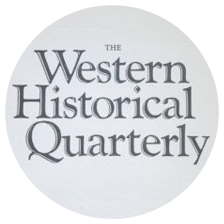
“The Long Arc of Dispossession: Racial Capitalism and Contested Notions of Citizenship in the U.S.-Mexico Borderlands in the Early Twentieth Century``
Western Historical Quarterly, Winter 2014 issue, 45.4.
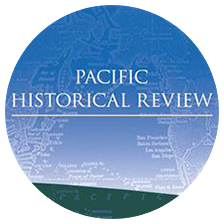
“Examining Chicana/o History through a Relational Lens,” part of the special issue on “Chicana/o History”
Pacific Historical Review, Vol. 82, No. 4, November 2013, 520-541.
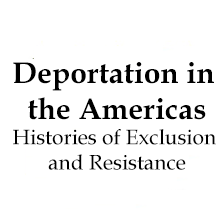
“Deportable Citizens: The Decoupling of Race and Citizenship in the Construction of the ‘Anchor Baby'``
in Deportation in the Americas: Histories of Exclusion and Resistance (note: in Italics just like the journal citation information
Best article award, Western History Association
“Borders, Laborers, and Racialized Medicalization: Mexican Immigration and US Public Health Policy in the Twentieth-Century”
American Journal of Public Health, 101 no. 6 (2011), 1024-1031.

“The Importance of Place and Place-makers in the Life of a Los Angeles Community: What Gentrification Erases from Echo Park”
Southern California Quarterly, Volume 97, Spring 2015 No. 1, pp. 69-111.
Best article award, Historical Society of Southern California
“The Long Arc of Dispossession: Racial Capitalism and Contested Notions of Citizenship in the U.S.-Mexico Borderlands in the Early Twentieth Century``
Western Historical Quarterly, Winter 2014 issue, 45.4.

“Examining Chicana/o History through a Relational Lens,” part of the special issue on “Chicana/o History”
Pacific Historical Review, Vol. 82, No. 4, November 2013, 520-541.

“Deportable Citizens: The Decoupling of Race and Citizenship in the Construction of the ‘Anchor Baby'``
in Deportation in the Americas: Histories of Exclusion and Resistance (note: in Italics just like the journal citation information
Best article award, Western History Association
“Borders, Laborers, and Racialized Medicalization: Mexican Immigration and US Public Health Policy in the Twentieth-Century”
American Journal of Public Health, 101 no. 6 (2011), 1024-1031.

“Medicalizing the Mexican: Immigration, Race, and Disability in the Early Twentieth Century United States”
Radical History Review, December 2005, pp. 22-37.
[ps2id id=’cv’/]
Curriculum Vitae
Academic & Administrative Appointments
Academic
2021-
Distinguished Professor of American Studies and Ethnicity
2020-2021
Huntington Library Fellowship
2018-
Professor, Department of American Studies & Ethnicity, University of Southern California
2017-2018
National Endowment for the Humanities Public Scholar Fellowship
2015-present
Professor, Department of History & Urban Studies Program, University of California, San Diego
2010-2015
Associate Professor, Department of History & Urban Studies Program, University of California, San Diego
2006-2010
Associate Professor, Department of Ethnic Studies & Urban Studies Program, University of California, San Diego
2001-2006
Assistant Professor of Ethnic Studies & Urban Studies, University of California, San Diego
Administrative
2019–2020
Inaugural Dean’s Administration Mellon Foundation Fellow
2016-2017
Associate Dean, Division of Arts and Humanities
2014-2015
Associate Vice Chancellor for Faculty Diversity and Equity
2011-2014
Associate Dean for Faculty Equity, Division of Arts & Humanities
2008-2010
Director of Graduate Studies, Ethnic Studies Department
2007-2008
Director for University of California Education Abroad Program, Spain
Education
B.A.
History & Women’s Studies Double Major University of California, Los Angeles
M.A.
U.S. History University of Michigan, Ann Arbor
Ph.D.
U.S. History University of Michigan, Ann Arbor
Education
B.A.
History & Women’s Studies Double Major University of California, Los Angeles
M.A.
U.S. History University of Michigan, Ann Arbor
Ph.D.
U.S. History University of Michigan, Ann Arbor
[ps2id id=’teaching’/]
Book Events
Los Angeles Times, Festival of Books
University of Southern CaliforniaSunday, April 24In conversation with Luis J. Rodriguez and Gustavo Arellano; Moderator: Daniel HernandezandIn conversation with George J. Sanchez and Pierrette Hondagneu-Sotelo; Moderator: Juan De LaraThe Huntington-USC Institute on California and the West (ICW)
webinar
Wednesday, May 18, 12 pmIn conversation with Kelly Lytle Hernández; Moderator:Gustavo ArellanoAlta Baja Market
Santa Ana, CASaturday, June 25, 1 pmIn conversation with Gustavo ArellanoFall 2022, dates TBD
The Levan Institute for the Humanities, USCUniversity of KansasUniversity of Oregon
Stories Book & Cafe
Echo Park, Los AngelesSunday, May 5, 6 pmIn conversation with Jesus Sanchez, Publisher of The Eastsider LA
Vroman’s Bookstore
Pasadena, CAThursday, June 23, 7 pmIn conversation with Michael Begler, producer and writerNational Humanities Conference
Los Angeles, CAThursday, November 10Opening Plenary, 6:30 pm
[ps2id id=’contact’/]
Contact
For speaking engagements, please contact
Kevin Mills
The Tuesday Agency
404 East College Street, Suite 408
Iowa City, Iowa 52240
o: 319-338-5640
![]() @Prof_NataliaM
@Prof_NataliaM